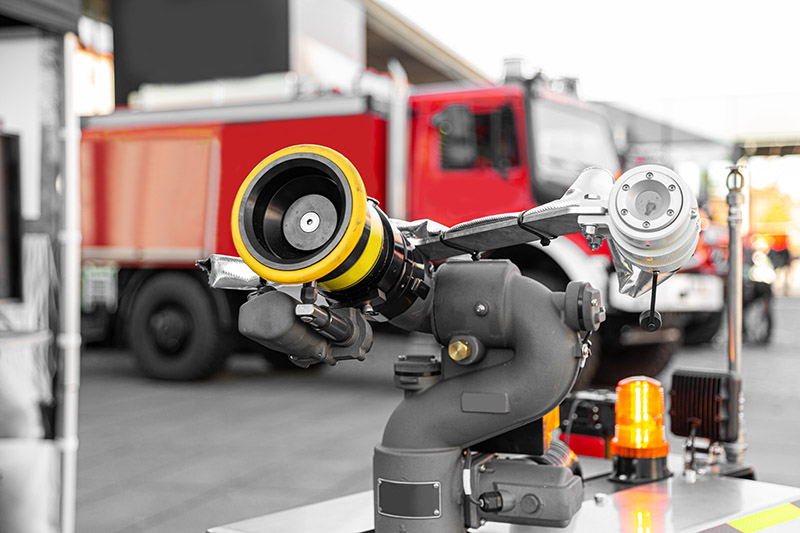Machine learning techniques could increase autonomy and intelligence in robotics
The 21st International Conference on Advanced Robotics, held in Abu Dhabi, showcased Khalifa University’s expertise in developing emergency-response robots for extreme environments.
There are more than 340,000 wind turbines now spinning across the world, as countries increasingly invest in renewable energy to tackle climate change. Keeping those turbines running smoothly requires a laborious, and potentially hazardous, program of maintenance and inspections.
Now, robots may offer help. Research presented at the International Conference on Advanced Robotics (ICAR), held at Khalifa University in Abu Dhabi in December 2023, described how autonomous flying robots could be used to routinely check the giant turbine blades for signs of wear and tear, especially in areas that are difficult or dangerous for human workers to reach.
Projects such as this, where researchers have applied machine learning to make robots more intelligent and autonomous, were a key focus at the conference. “The emerging trend is clearly in the use of machine-learning techniques to increase robotics autonomy and intelligence. The use of advanced computing techniques is also evident throughout this conference,” says Jorge Manuel Miranda Dias, Professor of Electrical Engineering and Deputy Director of the Center for Robotics and Autonomous Systems (KUCARS).

The ICAR event, the world’s oldest robotics conference and now in its 21st year, is held every two years. The Abu Dhabi event was the first to be held in person since the COVID-19 pandemic. The conference attracted more than 300 attendees, and 143 submissions, 90 of which were accepted after a rigorous review process. Dias, who chaired the conference, noted a significant turnout of international robotics researchers and excellent participation from the United Arab Emirates in particular.
“Khalifa University follows the criteria of high excellence in research. That is the correct path to achieve international recognized value.”
Jorge Manuel Miranda Dias
Autonomous navigation and computer vision were among the prominent topics for discussion. Presentations covered diverse areas, including the use of robots in entertainment, search and rescue operations and industry.
Robotics work at KU places significant emphasis on establishing connections with regional industry and companies, as Dias explains. “The local industry in the UAE has been profiting from the research ecosystem at Khalifa University to increase its competitiveness and inclusion of advanced technologies in the UAE and the Middle East and North Africa region.”
Khalifa’s research in robotics focuses on developing technology that can operate in extreme environments, such as creating autonomous devices designed to rescue people from fires in high-rise buildings. While such applications have potential, considerable technical challenges in robot perception, navigation and control must be addressed before robots can be effectively deployed in real-world emergencies.
Attendees at the ICAR conference presented the latest findings in soft robotics, computer vision and the specialized computing that allows the integration of artificial intelligence algorithms into robotic devices. The event also directed attention towards some of the challenges encountered in the field beyond the cutting edge of research.
“ICAR addressed recent advancements in robotics but was not limited to research topics,” Dias says. It also included workshops on areas with an impact on society including Education in Robotics and its Impact in the Industry; Women in Engineering; and Robotics in Africa.
“The research at Khalifa University is internationally recognized, as shown by the number of articles submitted by UAE researchers,” Dias notes. “KU follows the criteria of high excellence in research. That is the correct path to achieve international recognized value, as followed at other major universities all over the world.”




